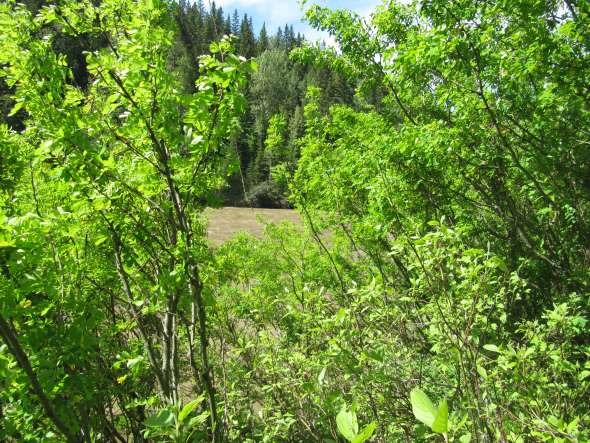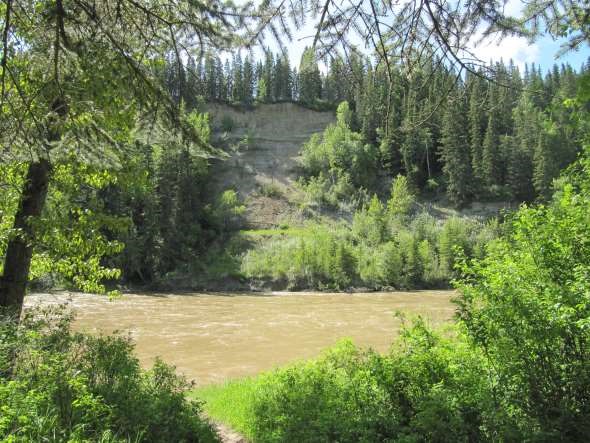Caraganas grow wild along this river.
A transverse tangle of stocks and stems,
their yellow flowers, somewhere within,
ache for bees.
Through this forest of crosses,
high, rolling brown water, pulls grasses
from banks, carries unclasped earth
from day-long rains, a reluctant log, a tire,
a box, the urine of children and beer drinkers.
How many rains and temporal streams
has this river seen? Its bottom scoured by
drifting rock and car bodies, its banks
scooped by ice and water-born grit
and still it dreams of delta moons.
And was there ever a point to the page-wire
around the base of this black poplar tree?
It has bitten its years into the dark
mountain ranges of bark.
Once, perhaps protected, then disciplined,
the tree now spends its leaves and limbs
to free itself.
Yesterday I listened to the strains
of a worship song, sung with trussed-up vigour;
its refrain of atoning blood,
for the satisfaction of divine wrath,
binding hearts and limbs
to the oldest code,
obscuring the older
law of love.



Oh, the depth, complexity.
Stephen, I am already distracted by the dull but-all-too-loud roar of periodic cicadas, the anticipation of soon-to-be days in Alaska, and of recent memories of watching the Tetons from the banks of the Snake River. Distracted from the drudgery of finishing a relatively non-creative piece of scientific writing, whose deadline is past due. (Good thing the editor likes me and wants this piece!)
And then this lovely poem to read, to ponder, to enjoy. More distractions. I love the pace of summer.
Caraganas, atoning blood obscuring primal love with the poetic observation of a river. Deep like a river.
Many thanks Joyce, for stopping by and reading. (It’s kind of an exploratory musing on a doctrine, although it certainly didn’t start out to be. Very limited appeal.)
Thanks Diane. Distractions like that are lovely and important. And many writers would love an editor like the one you have. Keep the pace.
Thanks, as always Ray, for your riveting insight.